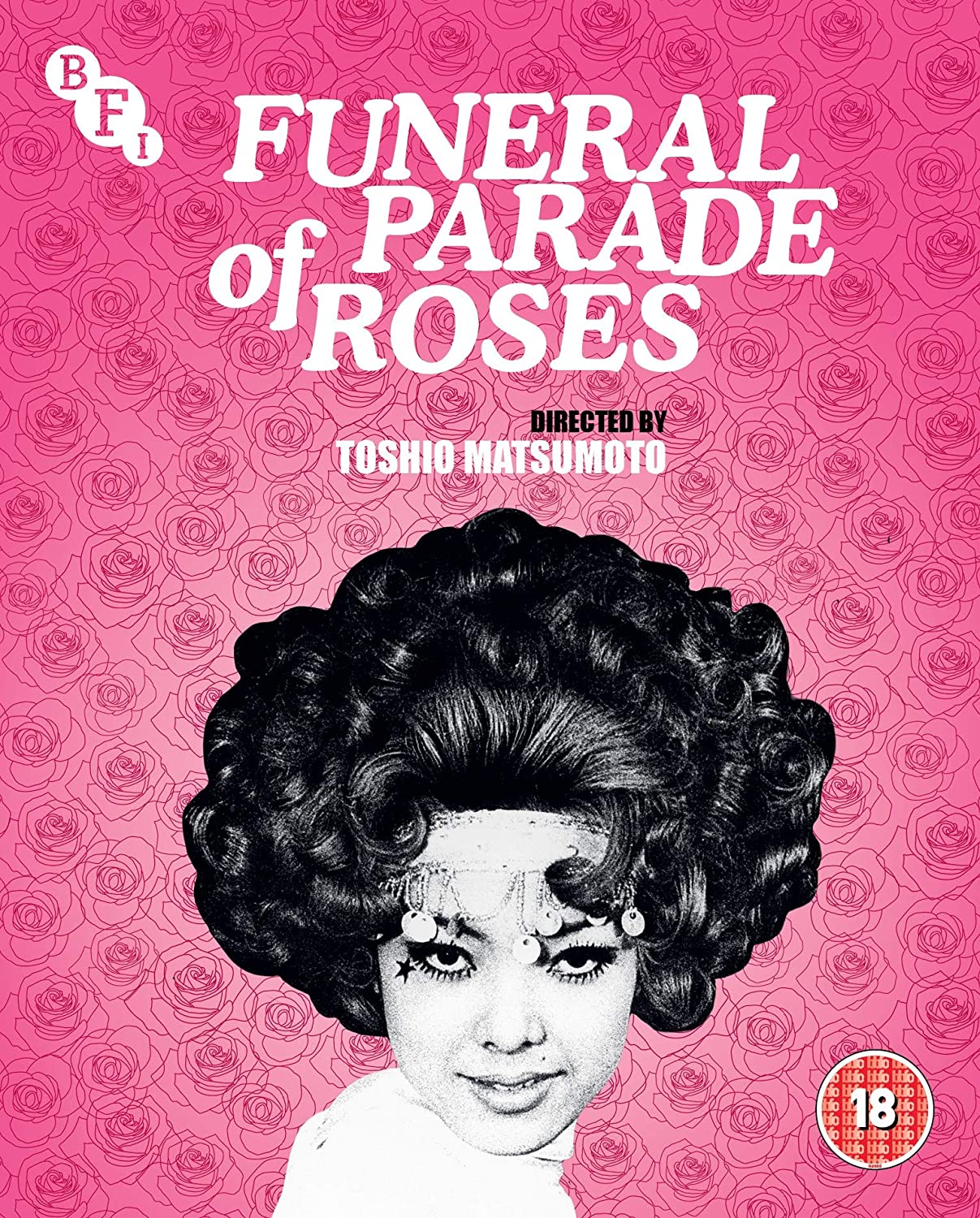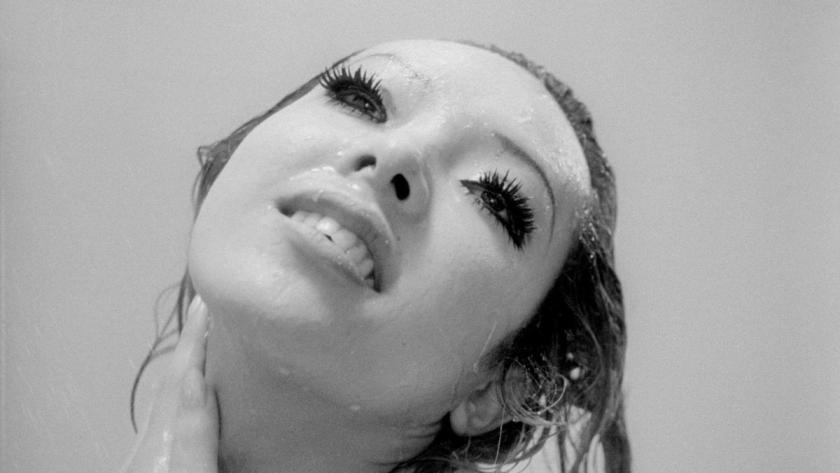There is a memorable scene in Toshio Matsumoto’s Funeral Parade of Roses (1969), in which a group of stoned hippies and cross-dressers force each other, one-by-one, to walk the length of a line of tape that runs along the floor. Those who await their turn are seen crouched below, their flailing arms beckoning the walker down from their imagined tightrope. When they fall, as they inevitably and willingly do, they are punished – with the forced removal of their clothes.
This unveiling of the naked body is a symbol for exposure, a metaphor for a film that seeks to shed light on “underground” cultures and narratives. Funeral Parade of Roses is a loose take on Oedipus Rex, following a short but tumultuous period in the life of Eddie, a hostess in one of Tokyo’s underground drag-queen bars. Played by the now-famous but then-unknown Japanese trans actor Pītā, the film enters Eddie into a fatal love-triangle with Madame Leda (Osamu Ogasawara), the bar’s reigning drag-queen, and lover to its male owner, Gonda (Yoshio Tsuchiya). This might not be a world to which Matsumoto belonged, but he is deft enough to avoid its fetishisation; the film's portrayal of the self-identifying “gay boys” is far from uniform. Instead, Funeral Parade of Roses seeks to underline the changing conventions and etiquette within a diverse culture: so, when the austere Leda seeks to condemn her younger and prettier rival, she draws attention to the unprofessionalism of Eddie’s forward and free-spirited sexual behaviour.
But the tightrope scene serves a second function. In staging the violent interruption of its characters’ path, Funeral Parade of Roses enacts the departure of its own recursive discourse from a straightforward linear narrative. Spliced into the main feature are a series of experimental interventions, including documentary-style interviews and film-within-film asides. One scene of Eddie returning with a client from the bar is interrupted with distorted TV images of students battling the kidotai (riot police), a nod to the political and social struggle that shook late-1960s Tokyo. But as if to pinpoint the complex dialogue between cinema and state, the film then cuts again – to another group of students, shown to be recording and reworking the footage for their own means.
 These are moves symptomatic of a director who, as an influential figure in the Japanese New Wave, engaged in a subversive overhaul of classical cinema. Borrowing from the example of the Italian avant-garde, Matusmoto's is a work in which, to quote the Lithuanian director Jonas Mekas (as one character in the film does explicitly), “all definitions of cinema have been erased.” Excerpts and flashes from Matsumoto’s host of short films appear, too – the full versions of which, along with an excellent feature-length commentary by film historian Chris. D, and a 34-page booklet of essays that further illuminate the context to the film, number among the special features in the set.
These are moves symptomatic of a director who, as an influential figure in the Japanese New Wave, engaged in a subversive overhaul of classical cinema. Borrowing from the example of the Italian avant-garde, Matusmoto's is a work in which, to quote the Lithuanian director Jonas Mekas (as one character in the film does explicitly), “all definitions of cinema have been erased.” Excerpts and flashes from Matsumoto’s host of short films appear, too – the full versions of which, along with an excellent feature-length commentary by film historian Chris. D, and a 34-page booklet of essays that further illuminate the context to the film, number among the special features in the set.
There is nothing gimmicky about Matsumoto’s radical approach to filmmaking. Fusing light-hearted comedy with abject horror, Funeral Parade of Roses is the equivalent of a wry smile, and a cutting slight against the establishment – both within cinema and without. Upon hearing Leda’s aforementioned complaint, Gonda responds, “You’re encouraging them by saying things like that.” In his creation of this daring and visionary work, the director took those words to heart.















Add comment